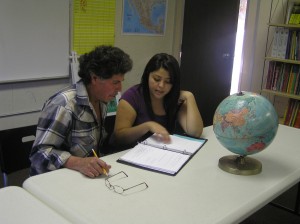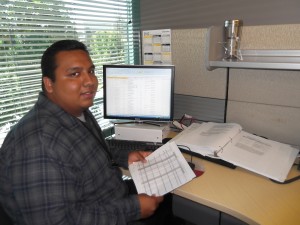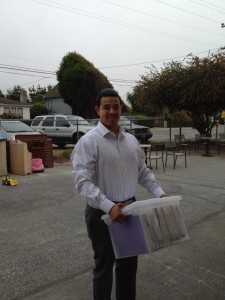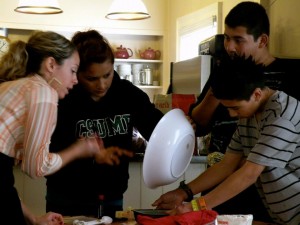
For Amy Glaze, fine cuisine is more than a pleasure. It’s a teaching tool.
This spring, Glaze teamed up with Puente to create Pescadero’s first after-school cooking class. For four weeks, a lucky group of Pescadero Middle School students tried out gourmet recipes under the tutelage of a master chef.
Glaze has been a cook at a three-star Michelin restaurant in Paris. She opened two San Francisco restaurants as chef de cuisine. But she says working with students and food is among the most rewarding experiences she’s had.
The tactile, rewarding immediacy of making a meal can make kids feel powerful, says Glaze.
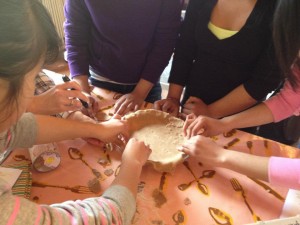
“The thing I’ve learned about food is students who weren’t succeeding in other subjects were succeeding in cooking. You have a real-life reason to succeed.”
That’s an important message for students who struggle with basic English.
Glaze and Puente Executive Director Kerry Lobel conceived the cooking class as a way to enrich students’ lives with new skills while creating dishes sourced from local ingredients sold at the Pescadero Grown! farmers’ market.
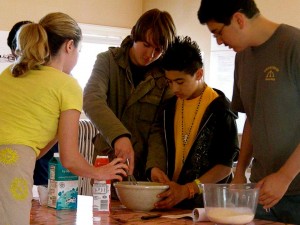
Glaze showed the kids how to create dishes with flavors they’d never tasted before, like a Mexican dish with charro beans, chorizo, cactus salsa and handmade tortillas. They also made quiche with local spinach, and a fresh-picked strawberry layer cake.
Students were mesmerized watching Glaze chop vegetables so quickly her hand was a blur. Catalina Perez, a 12-yrear-old middle school student, says Glaze also taught them how to cut an onion without crying.
“I thought the class was really good. This town is really small so we never get a lot of people that come from big places. To know that she was a chef in one of the biggest restaurants in the world was pretty exciting,” says Perez. In their last class, students spontaneously gave Glaze a round of applause.
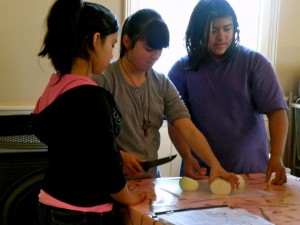
The success of the pilot class has inspired Glaze to pursue a wider plan: to teach cooking skills to Pescadero High School students, and ultimately develop a little cooking school that will give the older students job training they can use when they graduate. If the local school district gets on board, students could also earn credit.
Someday, students will be able to sell their cooking creations at the farmers’ market.
“It’s something they can do for the community and add to their resume,” says Glaze.
Funding for the project was provided by the David and Lucille Packard Foundation.
To learn more, contact Puente Executive Director Kerry Lobel at klobel@mypuente.org or (650) 879-1691 x144.

